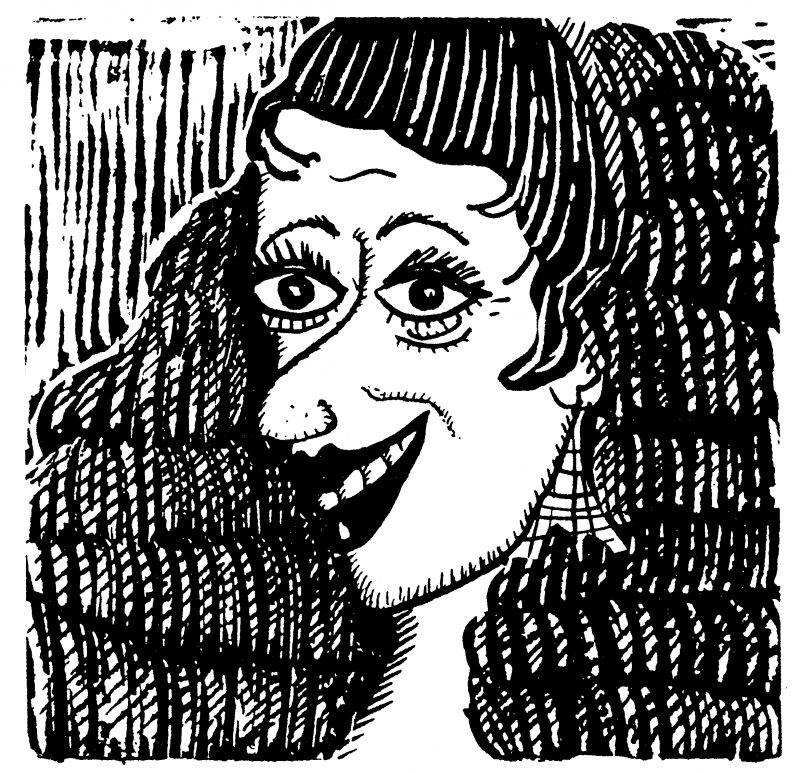Aline Kominsky-Crumb was born in 1948 in New York. She briefly attended SUNY New Paltz before running away to Manhattan’s Lower East Side, subsequently spending one semester at Cooper Union before moving to Tucson, where she earned a BFA in painting from the University of Arizona. At age twenty-two, freshly divorced, she picked up and moved to San Francisco to join the burgeoning underground comics scene, inspired by cartoonists like Robert Crumb (whom she later married) and pioneer Justin Green, whose 1971 Binky Brown Meets the Holy Virgin Mary inaugurated comics autobiography.
Kominsky-Crumb created what is widely regarded as the first women’s autobiographical comics story with her piece “Goldie: A Neurotic Woman,” which appeared in 1972 in the premier issue of the underground publication Wimmen’s Comix, earning her the title, as she puts it, of “the grandmother of whiny tell-all comics.” She continued to publish her work in underground titles such as Wimmen’s Comix, Manhunt, Lemme Outa Here!, Dope Comix, and Arcade, among others. She edited the acclaimed Weirdo for seven years and founded the comic books Twisted Sisters, Power Pak, Dirty Laundry, and Self-Loathing Comics (the latter two with Robert Crumb).
She has published three books: 1990’s Love That Bunch (named after her alter ego, “The Bunch”), 1993’s The Complete Dirty Laundry Comics (with Robert Crumb), and 2007’s Need More Love: A Graphic Memoir, a 384-page life narrative that showcases Kominsky-Crumb’s range as a visual artist in many different realms in addition to comics. Her next book will be a collaborative comics work with her husband, published by W. W. Norton. The couple’s collaborative comic strips have been appearing in the New Yorker since 1995.
I interviewed Kominsky-Crumb on the telephone on July 27, 2009. I was in my office in Cambridge; she was in her tall—nine-level!—stone house in Sauve, France (and within range of her husband, who piped in a few times). About a month later, she received me at her home, where she and Robert each have studios (she actually has two). Kominsky-Crumb not only walked me through her large and diverse body of work, much of which lines the walls of her home, but also consistently prepared me home-cooked meals—including chocolate cake—and took me to her very vigorous exercise class. The last night Aline and Robert and I were joined by her daughter, the cartoonist Sophie Crumb (Belly Button Comix), who lives about twenty minutes away and is expecting a baby boy—a subject at the center of Aline and Robert’s new,...
You have reached your article limit
Sign up for a digital subscription and continue reading all new issues, plus our entire archives, for just $1.50/month.
Already a subscriber? Sign in





